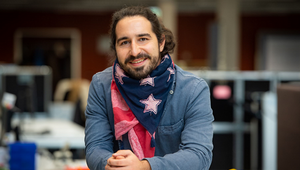Univ. Prof. Richard Küng (Institute for Integrated Circuits) has been inducted into the Austrian Academy of Sciences.

The JKU researcher became a member of the Austrian Academy of Sciences in recognition of his outstanding research in the field of theoretical computer science. Richard Küng remarked: "In a few years, I hope to be able to say that I not only found my profession, but also my calling, as an independent fundamental researcher and university professor in Austria. For the time being, all of the signs are good. I would, however, welcome a broader sharing and exchange platform in support of innovative ideas, and more contact with like-minded individuals. Together, we could explore ideas and shared perspectives on a much broader and bigger scale, inspire each other but also anchor each other. As far as I can tell, the Junge Akademie meets the criteria!"
At its annual election, the Austrian Academy of Sciences accepted 34 new members, including JKU faculty members Prof. Sepp Hochreiter and Richard Küng. Members of the Austrian Academy of Sciences are recognized for their outstanding expertise and scientific excellence in their respective fields.
Click here to read an interview featuring Richard Küng.
About Richard Küng
Born in 1988, Richard Küng studied physics at ETH Zurich, then earned his doctorate degree summa cum laude at the University of Cologne (2016) with his dissertation titled "Convex Reconstruction from Structured Measurements". He spent a semester conducting research at the University of Sydney, followed by stays at universities in Berlin and in California. He has been a university professor at the JKU’s Institute for Integrated Circuits (IIC) in the Department of Computer Sciences since April 2020.
 Go to JKU Homepage
Go to JKU Homepage









